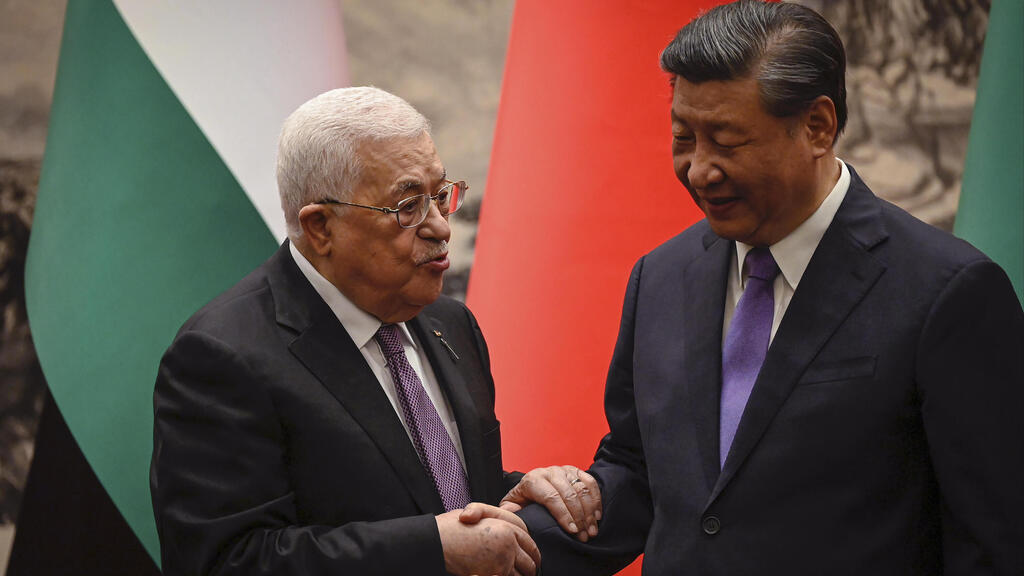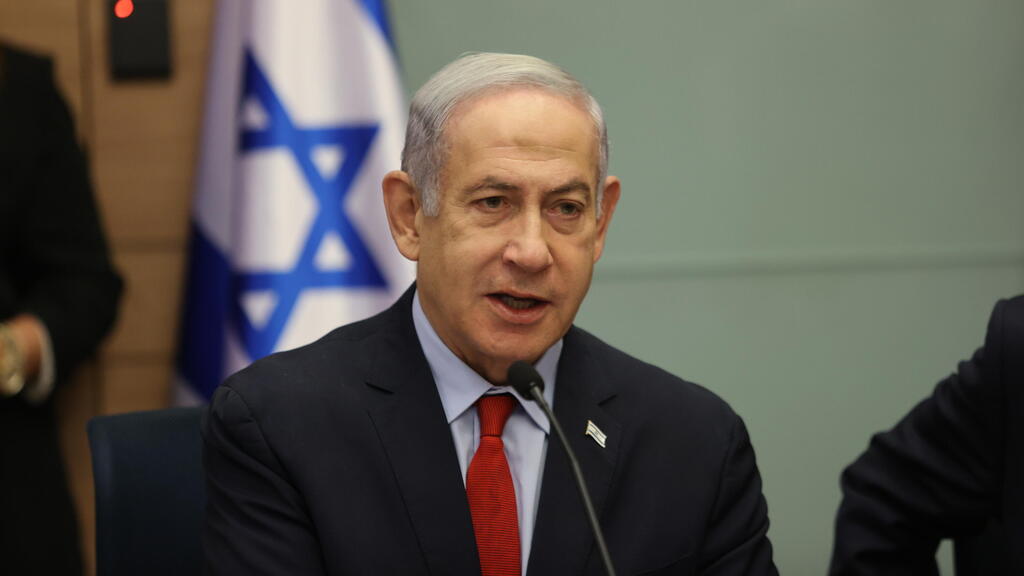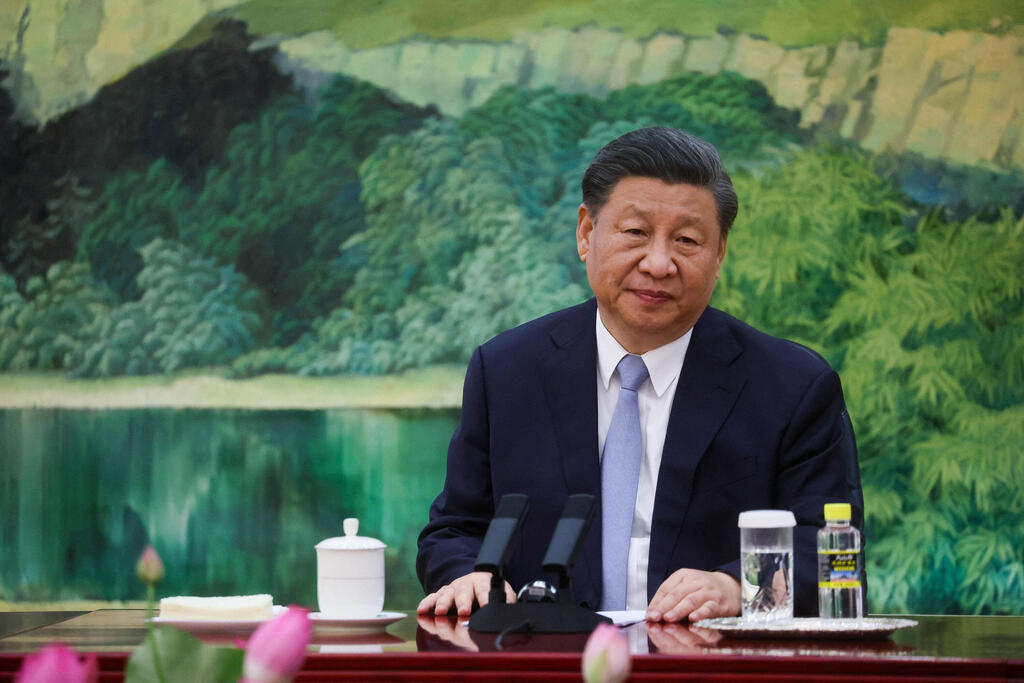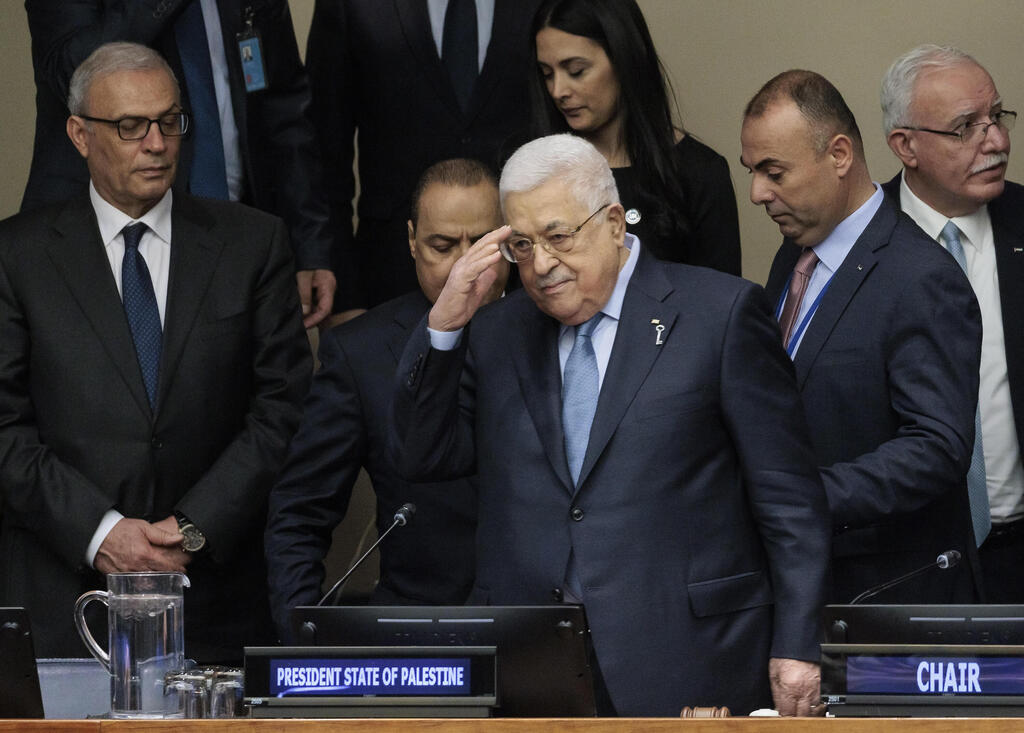Getting your Trinity Audio player ready...
In the past week, Palestinian Authority Chairman Mahmoud Abbas visited Beijing, and the Chinese made every effort to make it clear to him how much importance they attribute to "Palestine," in their own words.
Read more:
A military guard received him at the airport, and a spokesperson for the Chinese Foreign Ministry highlighted that he is the first Arab leader to visit China this year, which, according to him, reflects "the high level of good and friendly relations between China and the Palestinians."
On top of that, President Xi Jinping announced a "strategic partnership" between China and Palestine, a status similar to that given to important and influential countries in the region such as Egypt, Saudi Arabia and Iran.
There's no escaping it and it must be said out loud, Israel-China relations are on the decline from a political-diplomatic perspective, even though business delegations from China have been returning recently to promote trade with Israel. We have become accustomed to the fact that whenever the Israeli-Palestinian conflict flares up, China is quick to convene the UN Security Council and joins in condemnations of Israel.
Israel is also no longer surprised when senior Chinese officials call for "restraint on both sides" and work toward de-escalation. We have given up on waiting for the Chinese to condemn rocket fire toward Israeli civilians, and we were not surprised when China didn't even condemn the rocket attacks that hit and injured its own nationals working in Israel.
China sent a stark diplomatic signal by deviating from its meticulous protocol and inviting the Palestinian leader, while a similar visit by the Israeli prime minister does not seem imminent (by the way, even if Benjamin Netanyahu were invited to Beijing, it is doubtful that he would accept due to the escalating rivalry between China and the United States, as well as the fact that he has not been invited to the White House since his government was formed).
Regardless of this diplomatic setback, there is no need to get too excited about the bombastic declarations of China's economic investments in the PA. Judging from the past, it is highly doubtful the Palestinians will benefit significantly from this visit.
Although Abbas's economic adviser Mohammed Mustafa rushed to announce that China committed to investing in at least four projects in the Palestinian territories—a power plant, a solar panel production plant, a steel factory and infrastructure development for roads and highways—even if Israeli approval is granted for these projects, it is far from certain that Chinese companies will deviate from their usual practice and assume the economic risk.
So far, they have been reluctant to enter investments in unstable regions, and accordingly, Chinese investments in the PA are negligible.
Even the humanitarian aid provided by China to the Palestinians is very limited compared to European countries and the United States, and the trade between the parties is minimal as well.
The Chinese media boasted about a trading volume of $158 million in 2022, but it did not mention the fact that the majority of this sum is Chinese exports to the PA, while Palestinian imports amounted to only hundreds of thousands of dollars.
On the diplomatic front, Chinese involvement could potentially tangle Israel. It seems that even Abbas does not hold out too much hope in Chinese promises of investments and has chosen to focus on possible political benefits.
In his conversation with President Xi, Abbas requested discussions on efforts to recognize "Palestine" as a member of the UN and to involve the International Court of Justice regarding Israeli presence in the West Bank.
Abbas would undoubtedly be pleased to hear about China's willingness to assist the Palestinians in "achieving internal reconciliation and promoting peace talks" between them and Israel.
President Xi, who is currently basking in the brokerage of Saudi-Iranian rapprochement and aims to brand China as a responsible and peacemaking superpower, presented Abbas with a three-point plan to resolve the conflict.
Like its predecessors, the Four-Point Plan of 2013, the Four-Point Plan of 2017, and the Five-Point Plan of 2014, the current plan is very general and does not specify concrete steps.
It is difficult to ascertain whether Abbas truly believes that China wants to mediate between the parties or if he is willing to accept this service to continue benefiting from Chinese support in the UN.
Meanwhile, he signals to the United States that, similar to Saudi Arabia and the United Arab Emirates, the Palestinians are willing to consider Beijing as an alternative to Washington.
However, even if Abbas's visit does not yield any benefits, in the current situation, particularly in light of China's clear stance in favor of the Palestinians, Israel cannot afford to turn a cold shoulder on its close friend, the United States. This animosity could harm Israel's relations with the world's second-largest economy, and we will all feel the economic consequences.
- Galia Levi is a historian specializing in China and a researcher and Deputy Director of the Israel-China Policy Center - The Diane and Guilford Glazer Foundation of the Institute of National Security Studies at Tel Aviv University.





